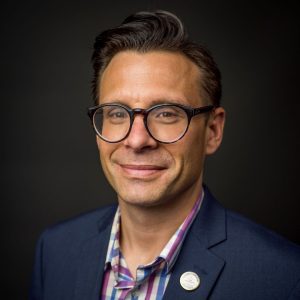When God heals from sickness, restores family relationships, provides a new job, or works supernaturally in our lives in some unmistakable way—there’s nothing quite like it. Its humbling, awe-inspiring, and invigorating. But there’s something even better. That’s when God works through us in another person’s life—particularly as we share the gospel and see them saved. Facilitating another person’s salvation moment, in spite of our human frailty and spiritual uncertainties, fulfills something deep within us. Being a channel of God’s power is even more satisfying than being a recipient of it.
Jesus alluded to this one day when his disciples asked him if he wanted some lunch. He had been witnessing to a woman, too engrossed to stop and eat, when he told them, “I have food to eat that you don’t know about” and then continued, “My food is to do the will of him who sent me and to finish his work” (Jn. 4:32, 34). While Jesus may have meant several things with the phrases “do the will of him” and “finish his work,” in this context his primary meaning was telling another person how to trust him for their relationship with God.
Based on Jesus’ example, the most fulfilling work any believer can do is share the gospel with another person. It’s a soul-satisfying experience, touching us at a deeper place than even satiating physical hunger. When you are instrumental in another person’s salvation, you touch eternity. You connect with God’s overarching purpose in the universe—gathering people for his eternal companionship. Paul described it this way: “This grace was given to me—the least of all the saints—to proclaim to the Gentiles the incalculable riches of Christ…This is according to his eternal purpose accomplished in Christ Jesus our Lord” (Eph. 3:8, 11). There’s nothing more fulfilling than being a conduit of God’s power when sharing the gospel. His power is available to every Christian, not just a spiritually-select few. Jesus said every believer can experience his power for sharing the gospel when he promised, “you will receive power…and you will be my witnesses” (Acts 1:8).
Reaching people with the gospel is messy. Sinners are sinners and often act like it. Christians realize building relationships with non-Christians, getting involved in their brokenness, and sharing the consequences of their bad choices is often odious. But they do it anyway. They are willing to sacrifice personal comfort, get over judgmental attitudes about offensive behavior, and support the wounded as they limp their way to Jesus. Christians don’t just talk about what it takes to reach people with the gospel, they do it.
While there are many biblical examples of methods and strategies for connecting people with God, it boils down to this: communicate the gospel. Some stories in the Gospels are analogous to bringing people to Jesus. Other times, they illustrate taking Jesus to people. The most important thing to remember, however, is you have been given the privilege, responsibility, and power to share the gospel. When you do, it’s likely you will be instrumental in people being saved. Every believer can share the good news about Jesus and be present when someone becomes a Christian. That’s God’s oldest and best-proven plan for getting the gospel to every person in the world. It’s also the most exciting spiritual victory you will ever experience.
Summer blogs are excerpted from my book “Shadow Christians: Making an impact when no one knows your name.”
Read More

Hope in Suffering
Gateway student Matt Bodden is an evangelist who is ready to answer the question of suffering with the gospel.

The Gateway Journal of Theology Inaugural Issue
Read all new articles in the inaugural issue of The Gateway Journal of Theology.
Listen
Prophets | Daniel Part 2
Now with the historical portion of Daniel done, Dr. Wegner takes us through the visions of beasts and years. All these figures intending to show us something. What does it all tell us about God?

Theology and Missiology with Dr. Peter Lillback
Rev. Dr. Peter Lillback, president of Westminster Theological Seminary, PA, and founder of The Providence Forum, joins Dr. Hopkins to chat about the inclusion of young children during the main services in church, the religion and theology of George Washington, and the

Watch

Jonathan Edwards and the Asbury Revival
Chris Chun and Chris Woznicki discuss the signs of true revival, signs of the work of the Holy Spirit, and why it is important to critically assess the characteristics of revival in a spirit of charity.

Jonathan Edwards and the Baptists | Douglas Sweeney, Nathan Finn and Chris Chun
Dr. Douglas Sweeney and Dr. Nathan Finn joined Dr. Chris Chun for a panel discussion on Jonathan Edwards, recorded live at the SBC Annual Meeting in Anaheim.




